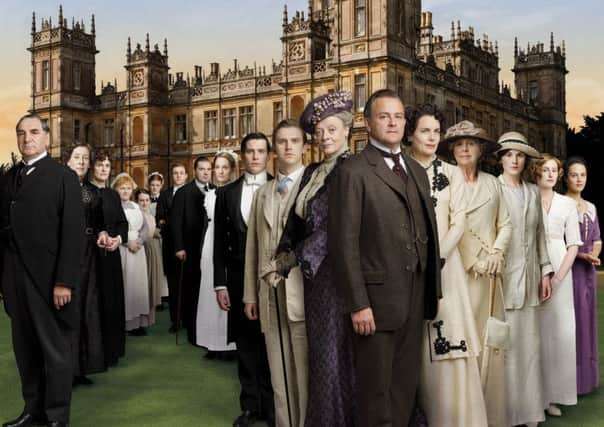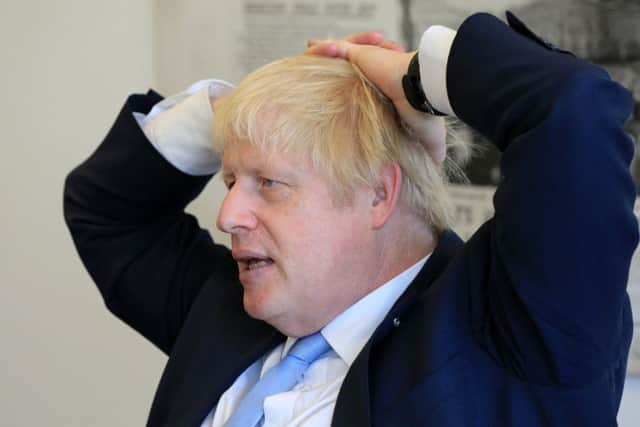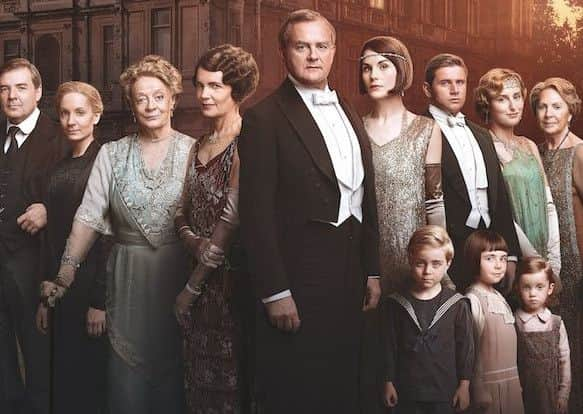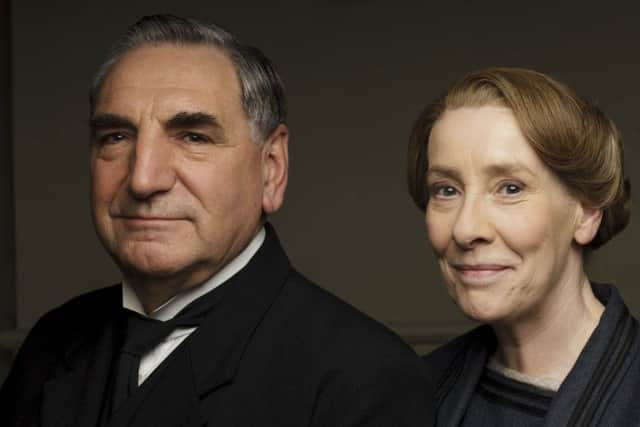What Downton Abbey teaches us about Yorkshire and modern attitudes – Jayne Dowle


Carter says that the ITV1 television series, which has been turned into a film out this week, is popular because it provides an escape from our turbulent times: “It isn’t cynical, it doesn’t contain men with guns… it’s just simple stories about people trying to get on and I think that’s what people like about it.”
Advertisement
Hide AdAdvertisement
Hide AdHe’s right about the guns bit, unless you count the Grantham family’s firebrand servant-turned-son-in-law Tom Branson’s dabblings in the Irish Civil War. However, I think that we like it for the very opposite reason; because it holds up a mirror to our troubling times.


The film is set in 1927, a year after the General Strike and a time of political and economic uncertainty at home and abroad. The Wall Street Crash was just around the corner and in Germany National Socialism was beginning its relentless march.
Still shaken after the bloody battering of the First World War and with bitter recriminations between Labour and Conservatives under Prime Minister Stanley Baldwin, Great Britain was a country with an identity in flux. Only the monarchy presents constancy, and even that (inevitably) shows its vulnerability.
Advertisement
Hide AdAdvertisement
Hide Ad

I’ve only seen trailers so far so I can’t report with certainty, but I’m told that characters both upstairs and downstairs reflect social changes we will readily identify with; for instance, the oft-troubled footman, Thomas Barrow (played by Thomas James Collier) is now allowed more than passing acknowledgement of his homosexuality, and Branson (played by Allen Leech) continues to wrestle with his political conscience along his snobbery-strewn path towards social mobility.
There is something about the cast of Dowager Countess Violet Crawley’s (Maggie Smith) haughty countenance that reminds me indubitably of Boris Johnson’s sense of righteous entitlement, just as the Sir Oswald Mosley of the BBC’s hit drama series Peaky Blinders (Sam Claflin) brings with him the reminder that we might live in the 21st century, but our society remains riddled with wealthy, privileged individuals who are prepared to trample others heedlessly underfoot in their desire to prove they have a divine right to rule.
I enjoy both dramas – chiefly because anything which brings history alive and rivets my teenage daughter to learning about it is good with me – and relish the fact that there is still something we’re good at. However, bringing the two together like this in comparison also begs a serious question about gender.
Advertisement
Hide AdAdvertisement
Hide Ad

It’s cool to like Peaky Blinders; indeed, the ‘‘look’’ of cropped hair, flat caps and sharp suits has become such a hit with young men that it’s now verging on parody. You see it at almost every wedding and there’s even a sports bar in Barnsley called The Garrison, named after the Birmingham pub owned by the Shelby brothers. When it first opened, the bar staff were actually obliged to dress in costume, like film extras.
Yet mention you like the ladies’ dresses and tiaras in Downton Abbey and you’re likely to be met by an ironic raised eyebrow, and not just always from the chaps either. We’ve come a long way from the social, political and sexual mores of the 1920s, but perhaps not far enough.
That said, I do respect your right to not be even vaguely interested in a costume drama stuffed full of luvvies who are wasting simply no time gushing on every media channel about the sheer marvellousness of Bafta-award winning writer Julian Fellowes’ latest successful shift from small screen to cinema.
Although I would give it a go. You might be pleasantly surprised. The whole premise of the thing is that it is set in a grand country house in Yorkshire, which is interesting anyway, but the film gives wider scope to our county’s starring role.
Advertisement
Hide AdAdvertisement
Hide AdLittle Germany in Bradford doubled as the streets of York and Dalton Mills in Keighley – plus Harewood House, Wentworth Woodhouse and Duncombe Park – also appear. It’s all very democratic actually.
Like Peaky Blinders, which is also partly filmed here, this gives a great boost to Yorkshire’s potential as one huge and glorious film set and also boosts regional tourism. Let’s give a shout to the importance of the creative arts in this.
And perhaps the buzz may also make us all reconsider our prejudices. My dad and also my partner looked aghast when first faced with the prospect of the 2012 Hollywood film of Victor Hugo’s Les Miserables, but both of them now quietly rate it as a favourite movie. Dad even bought the soundtrack on CD and played the stirring revolutionary track Red and Black on constant loop for weeks.
“The colours of the world are changing day by day,” I seem to recall. Now tell me again that there’s no point to watching a costume drama.